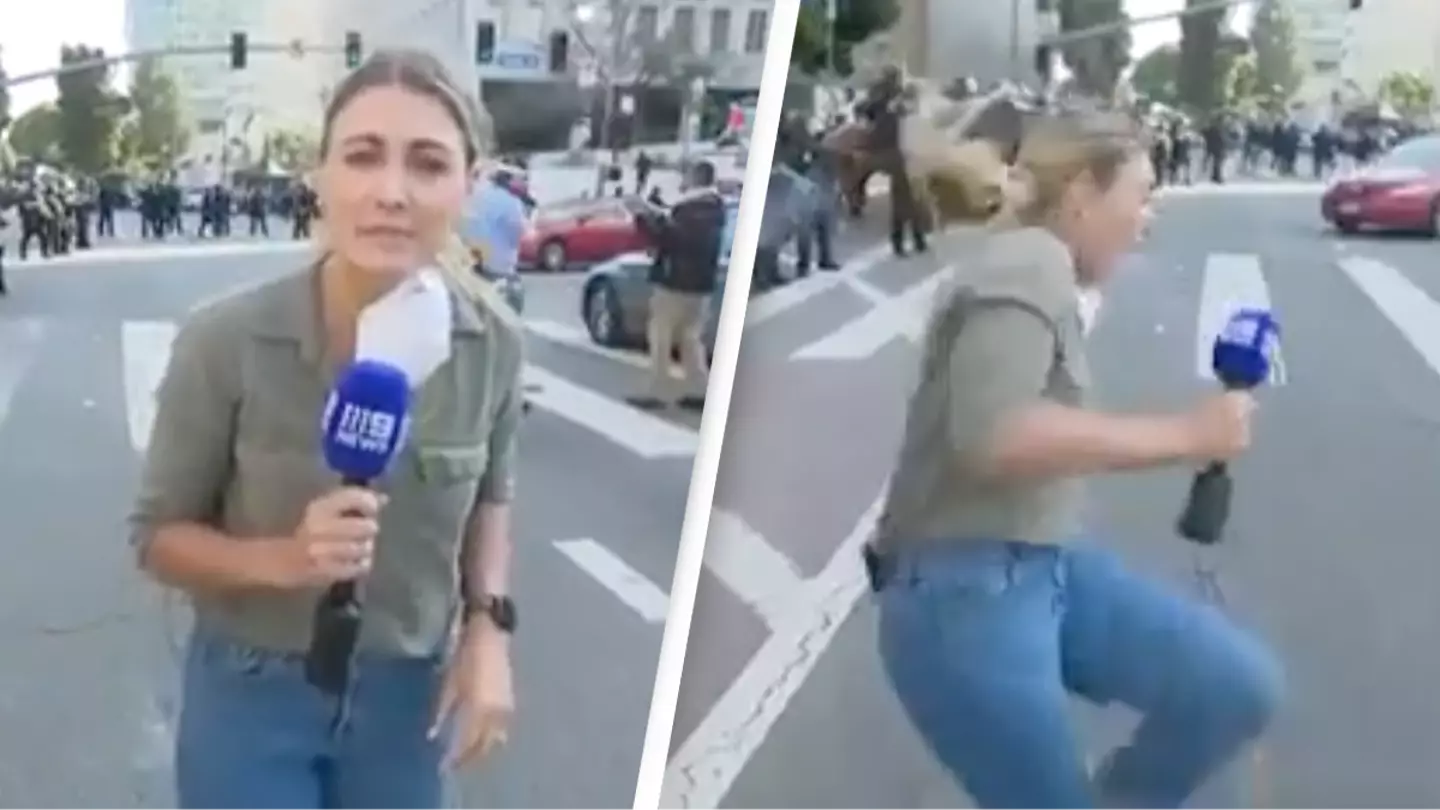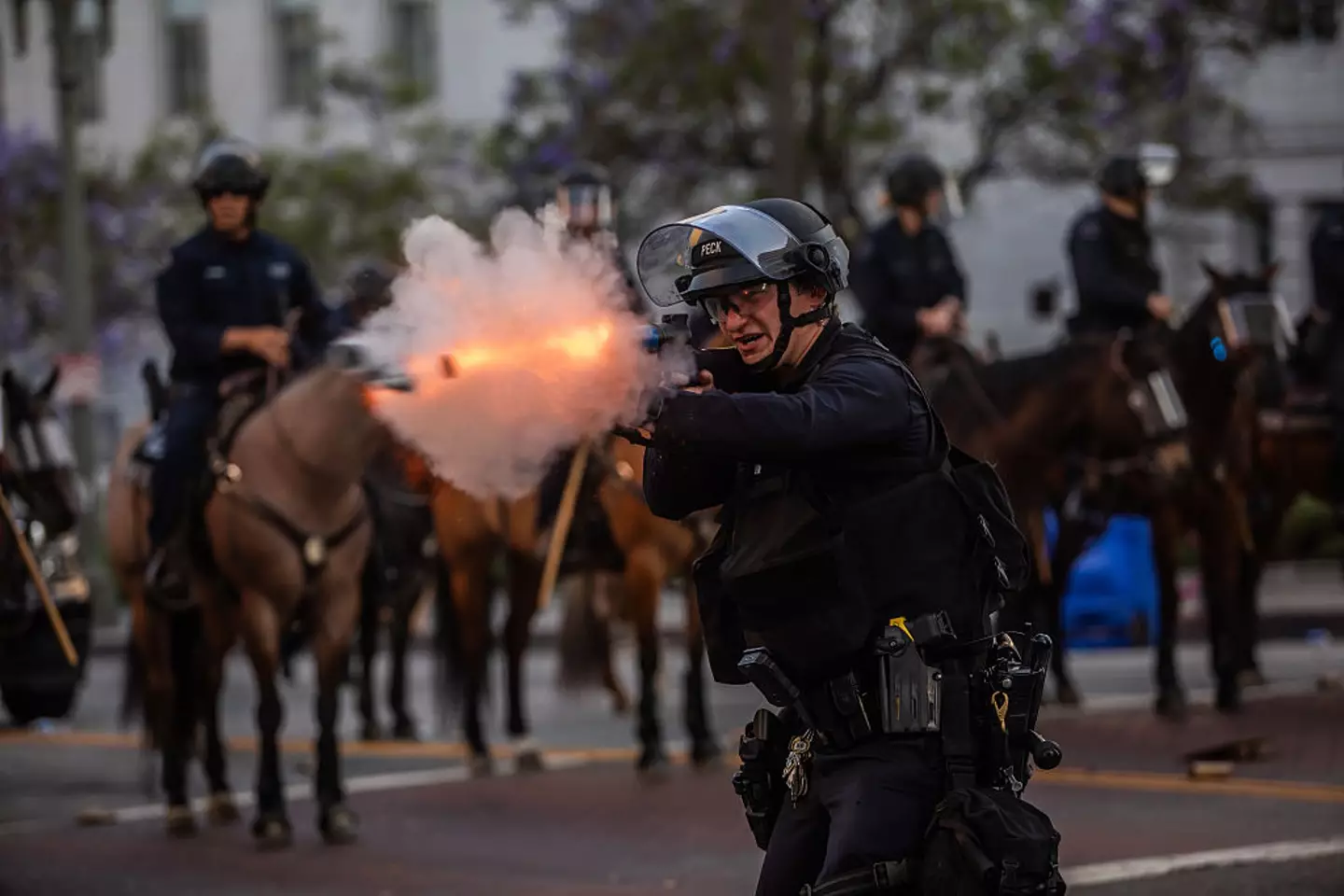
A journalist shot with a rubber bullet by the Los Angeles Police Department could sue, according to US law.
Protests began on Friday (June 6), sparked by Immigration and Customs Enforcement (ICE) arrests in areas of the city.
They soon erupted into riots over the weekend, prompting President Donald Trump to deploy National Guard troops.
Some broke out in San Francisco as well as Los Angeles.
Advert
The situation led to dozens of arrests in LA, including individuals accused of attacking police with a Molotov cocktail and a motorcycle.
Protestors set cars on fire, causing explosions and thick black smoke across Downtown LA, which police later shut down with an unlawful assembly order.
A video of 9News journalist Lauren Tomasi seemingly getting shot in the ankle by an LAPD officer's rubber bullet has gone viral.
The Australian reporter reacted in shock, jolting in pain and moving out of the shot.

9News confirmed that she was sore but otherwise unharmed, while later on Tomasi confirmed she and cameraman Jimmy were both safe.
"This is just one of the unfortunate realities of reporting on these kind of incidents," she added.
The footage prompted debate on social media, with some viewers alleging the LAPD officer deliberately targeted Tomasi, while others suggested protestors behind her were the intended target.
Some also questioned the absence of a press vest that might have identified her clearly as a journalist amid the chaotic scene.
Either way, people who are shot by rubber bullets may qualify to take legal action based on excessive force, negligence, or abuse of police power, the Police Brutality Center reports.
Under 42 U.S.C. § 1983, individuals can pursue legal action against state or local government officials who, under color of law, violate their constitutional rights, including those protected by the Fourth Amendment, which guards against unreasonable searches and seizures.
Force qualifies as excessive if a fair-minded officer would say a certain level of force is not objectively reasonable.
State and municipal laws also govern police conduct and acceptable levels of force.
Under US law, both federal civil-rights claims and ordinary tort claims extend to 'any person within the jurisdiction', not just US citizens.
So hypothetically, Tomasi would be able to sue, despite her being an Australian citizen, under the 1983 excessive-force damages law, as well as under California tort damages (battery, negligence and emotional distress).
However, to lodge a battery claim, for example, a plaintiff needs to show an intentional, harmful or offensive contact.
LADbible Group has previously approached the LAPD for comment.
Topics: Los Angeles, US News